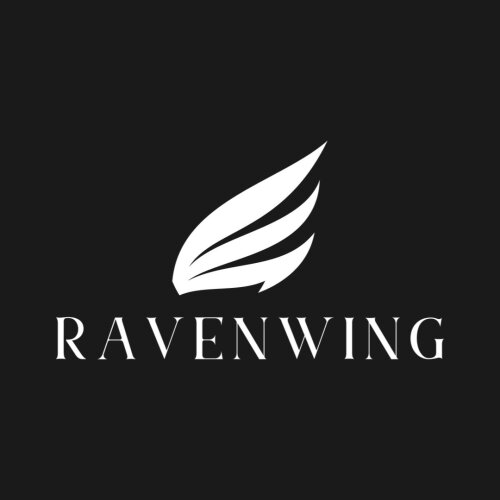Best International Trade Law Lawyers in Bang Na
Share your needs with us, get contacted by law firms.
Free. Takes 2 min.
List of the best lawyers in Bang Na, Thailand
About International Trade Law in Bang Na, Thailand
International Trade Law refers to the body of laws and regulations governing the exchange of goods and services between Thailand and other countries. In Bang Na, a prominent district of Bangkok with significant commercial activity, International Trade Law plays a vital role in supporting import, export, distribution, and supply chain operations. The legal framework is rooted in national laws, regional agreements, and international treaties that Thailand is part of. These laws regulate customs procedures, trade agreements, tariffs, dispute resolutions, and compliance with local and international standards.
Why You May Need a Lawyer
There are numerous situations in which individuals and businesses in Bang Na may require the expertise of an International Trade Law lawyer. Some common reasons include:
- Navigating import and export regulations for goods and services
- Resolving trade disputes with foreign partners
- Compliance with Thai customs laws and international sanctions
- Drafting and reviewing international commercial contracts
- Dealing with anti-dumping, countervailing duties, and safeguard measures
- Mitigating risks associated with cross-border transactions
- Protecting intellectual property rights in international trade
- Adhering to licensing and certification requirements
- Managing logistics, shipping, and cargo claims
A lawyer with expertise in International Trade Law can help navigate these challenges, reduce liabilities, and ensure compliance with both local and international requirements.
Local Laws Overview
International Trade Law in Bang Na, Thailand, is influenced by several key legal provisions:
- Customs Act: This law regulates the import and export of goods, duties, valuation, prohibitions, and penalties for violations. Customs procedures must be strictly followed to avoid delays or penalties.
- Export and Import of Goods Act: Sets forth requirements for the licensing and control of goods being imported into or exported out of Thailand, including restrictions on certain products.
- Anti-Dumping and Countervailing Act: Provides rules for the investigation and imposition of anti-dumping and countervailing duties on imports believed to be unfairly subsidized or priced below value.
- ASEAN and Free Trade Agreements: Thailand's participation in ASEAN and other FTAs affects tariffs, non-tariff barriers, and dispute resolution mechanisms.
- Intellectual Property Laws: Relevant to protecting trademarks, copyrights, and patents in cross-border trade.
- Prohibitions and Restrictions: Some goods are strictly controlled or prohibited for import or export, such as hazardous materials, pharmaceuticals, and cultural artifacts.
Violations of these laws can result in severe penalties, including fines, confiscation of goods, or even criminal liability.
Frequently Asked Questions
What documents are required for importing goods into Thailand?
Typically, you will need a commercial invoice, bill of lading or airway bill, packing list, import license (if required), and a certificate of origin. Additional documents may be necessary depending on the type of goods.
How are customs duties calculated?
Customs duties in Thailand are calculated based on the customs value of the goods, generally using the transaction value principle. Some items may be subject to specific rates based on quantity or other factors.
Are there any goods restricted or prohibited from import or export?
Yes, certain items such as hazardous substances, counterfeit goods, specific agricultural products, and items affecting national security are either restricted or outright prohibited. Always check the latest government lists before trading.
What is anti-dumping duty and when is it applied?
Anti-dumping duty is a protectionist tariff imposed on imports believed to be priced below fair market value, usually as a result of unfair subsidies from the exporting country. It is applied after an official investigation confirms dumping.
How can I protect my intellectual property rights when trading internationally?
You should register your intellectual property in Thailand and in the countries where you do business. Legal assistance ensures proper registration and helps enforce your rights in case of infringement.
What are Free Trade Agreements and how do they impact my business?
Free Trade Agreements (FTAs) reduce or eliminate tariffs and other barriers for member countries. Thailand is part of many FTAs, which can help lower costs and increase market access for your business.
Can I resolve an international trade dispute locally in Bang Na?
International trade disputes can often be resolved through negotiation, mediation, or legal proceedings in Thailand, depending on the terms of the contract. Expert legal guidance is essential to choose the right forum and process.
What should I look for in an international trade contract?
Key elements include clear delivery terms, payment conditions, dispute resolution mechanisms, governing law, and clauses addressing force majeure and intellectual property rights. A qualified lawyer can help draft or review contracts to protect your interests.
Do I need an import or export license for trading?
Certain goods require licenses before they can be imported or exported. The requirements depend on the product and current regulations. Legal counsel can clarify which licenses apply to your situation.
What are the penalties for violating international trade laws in Thailand?
Penalties can range from administrative fines and forfeiture of goods to imprisonment for severe violations. It is essential to comply fully with all relevant laws and seek legal guidance when in doubt.
Additional Resources
For more information and support, consider the following resources:
- Department of Foreign Trade, Ministry of Commerce - Administration of import and export regulations
- Thai Customs Department - Guidance on customs clearance, duties, and compliance
- Thailand Board of Investment (BOI) - Investment promotion and trade facilitation for businesses
- Bangkok Chamber of Commerce - Business advocacy and information on trade regulations
- ASEAN Secretariat - Updates on regional trade agreements and compliance requirements
- Legal Aid Centers and private law firms with international trade law expertise
Next Steps
If you need legal assistance with International Trade Law in Bang Na, Thailand, consider taking the following steps:
- Gather all relevant documents related to your trade activities, such as contracts, invoices, and communication records.
- Research local law firms or legal professionals with expertise in international trade law.
- Schedule a consultation to discuss your situation and explore legal strategies.
- Prepare questions about customs compliance, permits, and potential risks specific to your case.
- Follow your lawyer's advice to ensure your activities fully comply with Thai and international regulations.
Taking early action and seeking professional legal advice can help protect your assets, ensure smooth operations, and avoid unnecessary legal complications in international trade.
Lawzana helps you find the best lawyers and law firms in Bang Na through a curated and pre-screened list of qualified legal professionals. Our platform offers rankings and detailed profiles of attorneys and law firms, allowing you to compare based on practice areas, including International Trade Law, experience, and client feedback.
Each profile includes a description of the firm's areas of practice, client reviews, team members and partners, year of establishment, spoken languages, office locations, contact information, social media presence, and any published articles or resources. Most firms on our platform speak English and are experienced in both local and international legal matters.
Get a quote from top-rated law firms in Bang Na, Thailand — quickly, securely, and without unnecessary hassle.
Disclaimer:
The information provided on this page is for general informational purposes only and does not constitute legal advice. While we strive to ensure the accuracy and relevance of the content, legal information may change over time, and interpretations of the law can vary. You should always consult with a qualified legal professional for advice specific to your situation.
We disclaim all liability for actions taken or not taken based on the content of this page. If you believe any information is incorrect or outdated, please contact us, and we will review and update it where appropriate.










